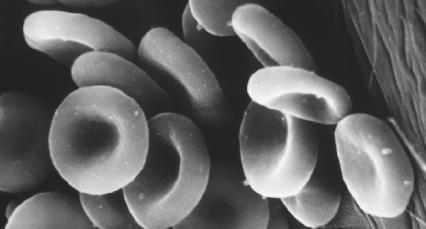Anemias - Causes
Anemia is caused primarily by one of three conditions. The first is bleeding. Bleeding results in the loss of red blood cells from the body. The second condition is a decreased rate of red blood cell production. Red blood cells are not produced as fast as they die off. The third condition is an increased rate of red blood cell destruction. Red blood cells die off faster than they can be replaced by the body.

Of these factors, bleeding is the most common cause of anemia. Bleeding can be a chronic or acute problem. A chronic problem is one that lasts for a long period of time. An acute problem is one that comes on suddenly and is quite severe. Some common causes of chronic bleeding include:
- Cancer (see cancer entry)
- Gastrointestinal (digestive system) tumors
- Other diseases and disorders of the digestive system
- Heavy menstrual flow
- Hemorrhoids
- Nosebleeds
- Stomach ulcers (see ulcer entry)
- Long-term alcohol abuse (see alcoholism entry)
Acute blood loss is usually the result of:
- Childbirth
- Injury
- A ruptured blood vessel
- Surgery

Comment about this article, ask questions, or add new information about this topic: